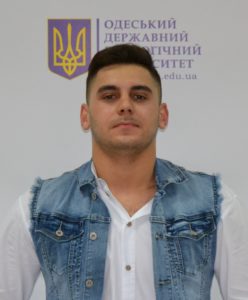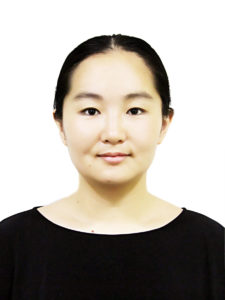INTENSE QA arrangements
The system of quality control and monitoring will be based on the continuous check of indicators to be identified at the beginning of the project by dedicated QA work groups led by the Vice-Coordinator (WGs4.1-4.2) at the first project GAP Meeting (M3) (draft proposals prepared by the leader of WP4), milestones set-up in this application, WP detailed work plans and the overall project schedule approved on the same GAP meeting. Quality control will be organised in the three streams: (1) mobility, (2) overall project progress and staff time allocation, and (3) curriculum and institutional development. The QA strategy and procedures are set in the INTENSE Quality Control Plan. The QA materials developed during the project lifetime are available here.
The Steering Committee helped by WG4.1 will collect information about mobility streams and analyse it against the established targets; the outcomes will be reported to the GAP in the Coordinator report; recommendations will be provided to the consortium and/or individual partners. An on-line system will be set-up, and all the partners will be requested to submit to it information about the envisaged mobility at least in 3 days before the start of travel arrangements, and if no objections are raised by a member of the Coordination Committee, partners may continue with travel arrangements; within a month after completing the visit the partners will be requested to post in the system a brief overview of the outcomes achieved. A similar arrangement will be developed to monitor staff time.
The overall project progress will be monitored by WG4.1 in cooperation with WP leaders overseeing WP activities and reporting on them at each Steering Committee meeting; in cases where urgent concerns have been raised in the interim period by partners, WP leaders, or the Coordinator will check on the issue and discuss possible solutions with partners and/or WP leaders in question. In the event of major delays and/or problems with achieving the anticipated quality of outputs, the Coordinator & Vice-Coordinator will consult all the partners, develop an action plan to mitigate the consequences, get it reviewed by the Steering Committee and approach EACEA for approval; any minor changes will be approved by the Steering Committee. P5,8,11 are focal points in MN,UA,VN; they will oversee national organisational and reporting issues, and liaise with national Ministries of Education and Erasmus+ offices.
The Steering Committee monitors the quality of curriculum/institutional development efforts and their consistency with the declared objectives; the overall monitoring approach will be adopted from the UK Quality Code for Higher Education (QAA, 2014). The success of curricula will be monitored by self-evaluation exercises (including staff and student evaluations), and all the regular institutional evaluation procedures (internal and external) will be run as well. An external QA officer is overseeing the validity of peer-review arrangements, the overall implementation of the quality plan, and the end-of-the-project survey evaluating the INTENSE deliverables and their sustainability. The materials developed by external QA officers are available here.
Quality Assurance Team
To implement the plan, Quality Assurance Team (QAT) is set up composed of LPMs or their delegates. QAT monitors and evaluates the quality indicators of the project outputs and outcomes. Quality reports/decisions on each deliverable are issued by two independent bodies – WP Leaders and QAT. External assessments are envisaged for such key deliverables as the university courses (peer-reviewing and approval by Academic Councils of Faculties and/or Universities) The quality reports are available online to all the consortium members and, where relevant, disseminated to external stakeholders.
QAT assists Project Manager (PM) in monitoring the project performance indicators and updating the project work plan, as well as in synthesising a feedback from field monitoring visits by National Erasmus+ Offices into periodic internal quality reviews. This information is then integrated into the work packages. The Coordinator takes operational decisions on risk mitigation; strategic decisions are taken by Steering Group.
QAT Members
- Lilian Ariva, EMU, Estonia
- Erika Lagzdina, LNU, Latvia
- Aron Buzogany, BOKU, Austria
- Olena Hubanova, OSENU, Ukraine
- Ganna Titenko, KKNU, Ukraine
- Oksana Maryskevich, IECNASU, Ukraine
- Amarjargal Auyrzana, KHU, Mongolia
- Ochir Altansukh, NUM, Mongolia
- Hien Thi Thu Nguyen, HUST, Vietnam
- Thai Phuong Vu, HCMCUNRE, Vietnam
Volumes of QA reports produced by the QAT are available from the dedicated sections of the website.
The QA Officer
 Ruben Mnatsakanian, PhD, Prof. mnatsaka@ceu.edu
Ruben Mnatsakanian, PhD, Prof. mnatsaka@ceu.edu
Professor Mnatsakanian is an expert in environmental sciences and policy with 36 years experience in the field of environment. Currently, he is a professor at the Central European University based in Budapest and Vienna. He was the Head of the Department of Environmental Sciences and Policy of the University for over 15 years. Also, since 1996 Professor Mnatsakanian is the Project Participant of the Global Environment Outlook (GEO) Project a project launched by UNEP (United Nations Environment Programme) and in which the Department of Environmental Sciences and Policy is one of the collaborating centres. The GEO project addresses the major, current and emerging, regional and global environmental problems, as well as the main driving forces (social and economic) behind those problems.
Report volumes developed by the QA officer are available from the dedicated section of the website
Student representatives to INTENSE QA bodies
Odessa State Environmental University, Ukraine:
 Vladyslav Mykhailenko, a PhD student of the 1st year of study, Speciality – 101 Environmental Science, a participant of the NEXT Summer School on Nature-Based Solutions for Smart Cities, held on 15 – 26 August 2018 in Mahilioŭ, Belarus, and an active participant of numerous public environmental events.
Vladyslav Mykhailenko, a PhD student of the 1st year of study, Speciality – 101 Environmental Science, a participant of the NEXT Summer School on Nature-Based Solutions for Smart Cities, held on 15 – 26 August 2018 in Mahilioŭ, Belarus, and an active participant of numerous public environmental events.
vladislav.mykhailenko@gmail.com
HCMC University of Natural Resources and Environment, Vietnam:
 Phuong Pham, currently working as a lecturer, the major is Environmental Management. Work experience includes Korea, Indonesia, Sweden and Viet Nam. Environmental Expert specialized in Environmental Planning and Management, environmental monitoring, environmental risk assessment, environmental and social impact assessment and strategic environmental assessment. Design and delivery environmental propaganda and education for schools, social unions and enterprises in environment and safety. Coordination and principle participation of the different components involved in a multi-disciplinary environmental project. Building and appraising business plans for environmental, social and energy projects.
Phuong Pham, currently working as a lecturer, the major is Environmental Management. Work experience includes Korea, Indonesia, Sweden and Viet Nam. Environmental Expert specialized in Environmental Planning and Management, environmental monitoring, environmental risk assessment, environmental and social impact assessment and strategic environmental assessment. Design and delivery environmental propaganda and education for schools, social unions and enterprises in environment and safety. Coordination and principle participation of the different components involved in a multi-disciplinary environmental project. Building and appraising business plans for environmental, social and energy projects.
phuongpham1910@gmail.com
National University of Mongolia:
 Gantuya Ariunsan, a PhD student in Environmental Science program at National University of Mongolia. Her experience and qualifications are mostly related to public policy analysis and she is interested in environmental policy efficiency and impact evaluation.
Gantuya Ariunsan, a PhD student in Environmental Science program at National University of Mongolia. Her experience and qualifications are mostly related to public policy analysis and she is interested in environmental policy efficiency and impact evaluation.
gantuya.ariunsan@sciencespo.
